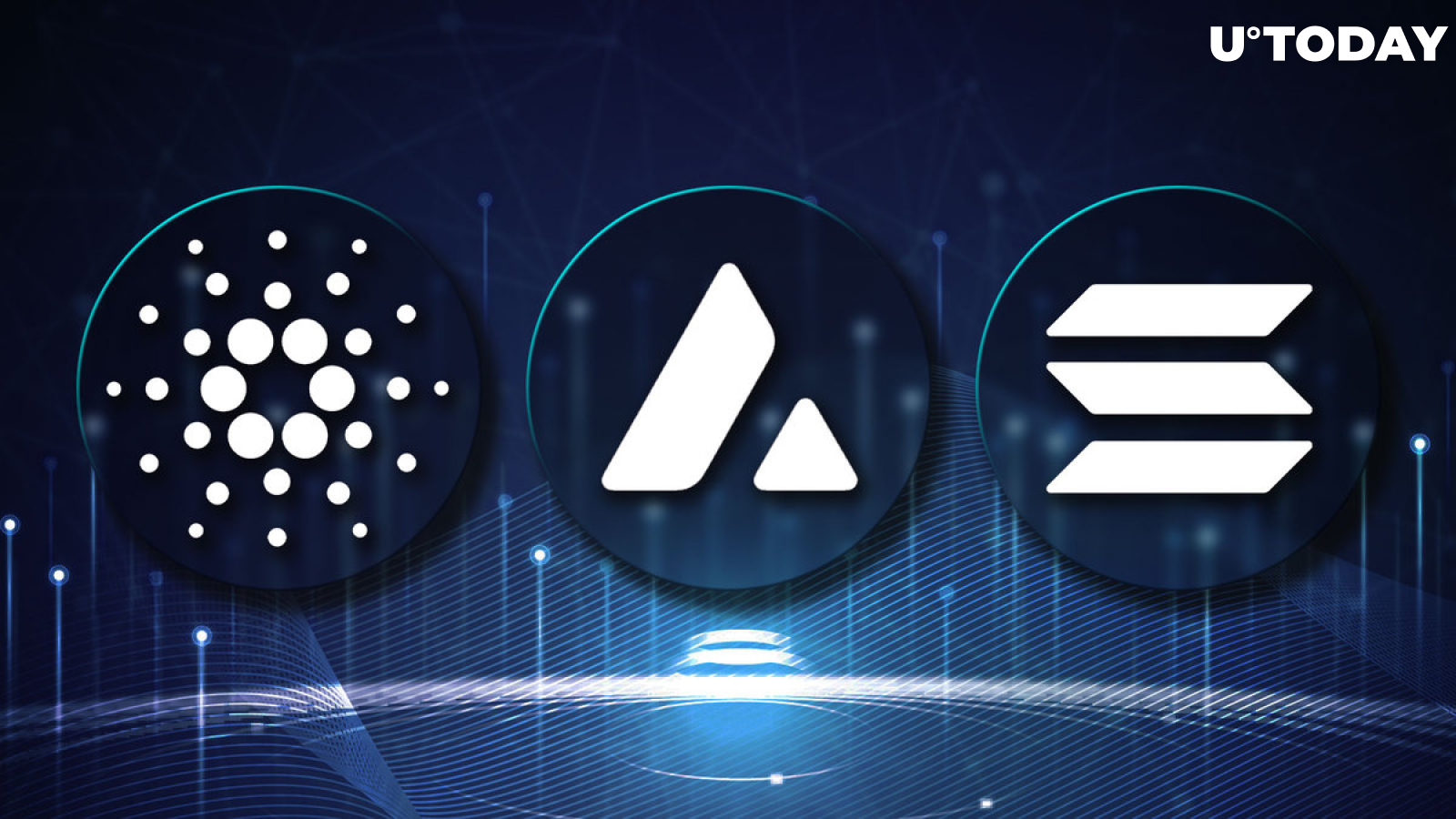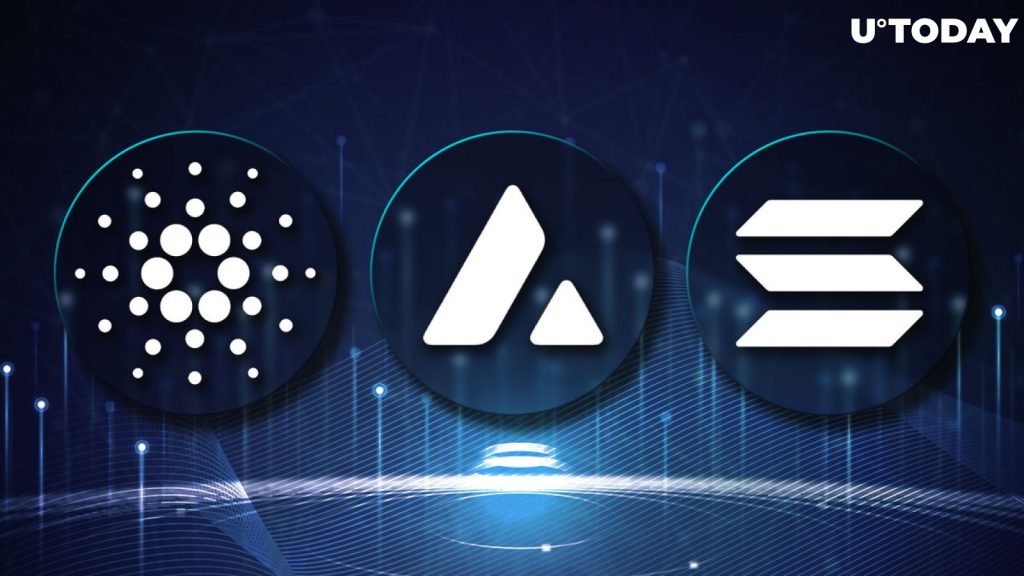
Disclaimer: The opinions expressed by our writers are their own and do not represent the views of U.Today. The financial and market information provided on U.Today is intended for informational purposes only. U.Today is not liable for any financial losses incurred while trading cryptocurrencies. Conduct your own research by contacting financial experts before making any investment decisions. We believe that all content is accurate as of the date of publication, but certain offers mentioned may no longer be available.
In early 2023, Cardano (ADA), Avalanche (AVAX) and Solana (SOL) have demonstrated significant growth. These cryptocurrencies, often referred to as “Ethereum killers,” are garnering increasing attention from investors due to their potential utility and advantages. Compared to Ethereum (ETH), which currently experiences slow transaction speeds and high transfer fees, these alternative blockchain solutions offer efficient, low-cost propositions.
Cardano, the leading competitor in terms of market capitalization on our list, has achieved scalability through the implementation of the Ouroboros consensus engine, a proof-of-stake (PoS) cross-chain algorithm. Unlike proof-of-work (PoW) algorithms, which require validation of each transaction by all nodes on the network, Ouroboros utilizes a randomized selection of nodes for transaction validation. As the network increases in size, this results in an overall increase in scalability.
Avalanche, in contrast, achieves scalability through the utilization of a decentralized subnet architecture known as Avalanche-X. This architecture enables the AVAX network to efficiently manage multiple subnets, each with distinct consensus configurations and governance protocols. Additionally, the network is divided into small groups of nodes, which work cooperatively to facilitate swift transaction processing.
Solana aims to achieve scalability through its implementation of a hybrid consensus model, which combines proof of stake (PoS) and proof of history (PoH). PoH is a protocol that creates a historical record to confirm the occurrence of transactions at a specific time. This approach allows the network to achieve high scalability as it eliminates the need for every node to validate every transaction, thereby reducing the requirement for significant computational resources.
Having gained an understanding of the scalability mechanisms employed by each of these alternative coins, it is worth examining the reasons behind the growing enthusiasm for Ethereum’s rivals.
Cardano
Since the start of the year, ADA has seen a 41% increase in value. This robust performance can be attributed to a combination of factors, including the introduction of new features, high development activity and substantial investment from major investors. Additionally, the creation of stablecoins, decentralized oracles, sidechains and dApps optimized for EUTxO are contributing to the upward trajectory of the cryptocurrency.
Cardano has consistently demonstrated its potential to not only rival Ethereum but to also provide cost-effective and high-quality decentralized solutions and capabilities for developers. This has resulted in an increasing level of attention and interest in the cryptocurrency market.
Avalanche
Avalanche has successfully distanced itself from the negative impact of the Terra (LUNA) ecosystem collapse in May 2022 by forming strategic partnerships, expanding its presence on the stablecoin market and actively engaging with its community. Community engagement is a vital aspect for the longevity and success of a cryptocurrency.
The development team at Avalanche has made significant efforts to enhance the functionality of its network and provide support for decentralized application developers. These efforts have been instrumental in making the Avalanche blockchain more robust and scalable, which has contributed to its 54% growth in market capitalization in the early days of 2023.
Solana
Lastly, Solana has emerged as the top performing altcoin in this analysis, with a 139% increase in value since the start of January. The cryptocurrency has managed to separate itself from the negative impact of the decline of Alameda Research and FTX and has seen a rise in trading volume, network activity and a boost thanks to a meme token.
Recently, Anatoly Yakovenko, the founder of Solana, announced several improvements aimed at ensuring the stability and scalability of the network, and preventing downtime similar to that experienced in the previous year. These enhancements have the potential to propel SOL to new heights and attract more decentralized applications to its platform, thereby driving continued growth and solidifying its position on the market.
